
AlphaLISA B7-H5/VISTA Detection Kit, 100 Assay Points
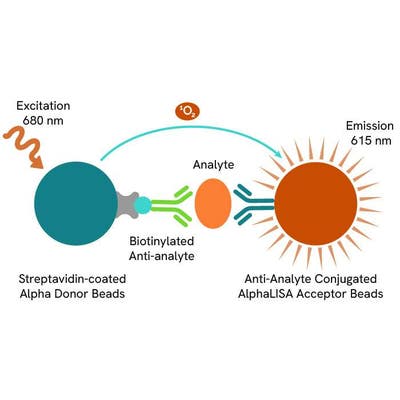

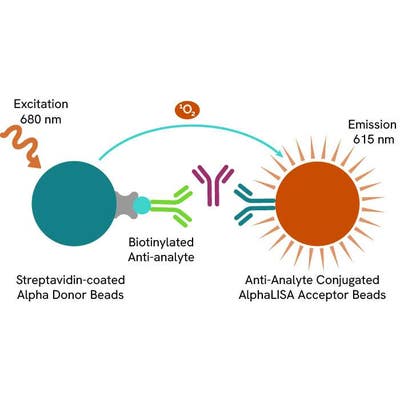 View All
View All
AlphaLISA B7-H5/VISTA Detection Kit, 100 Assay Points
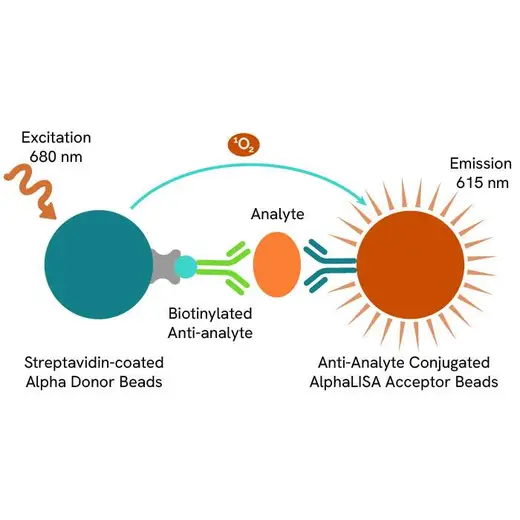

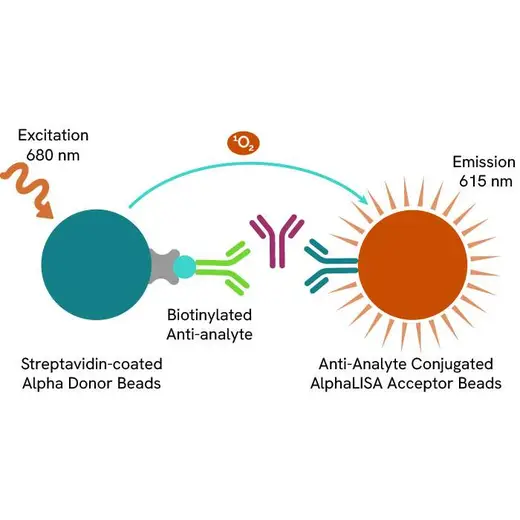




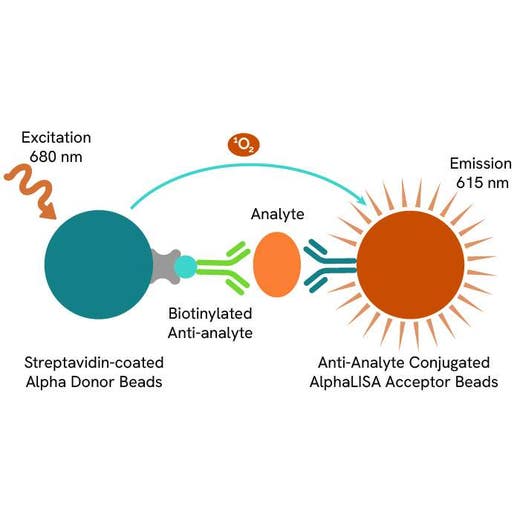

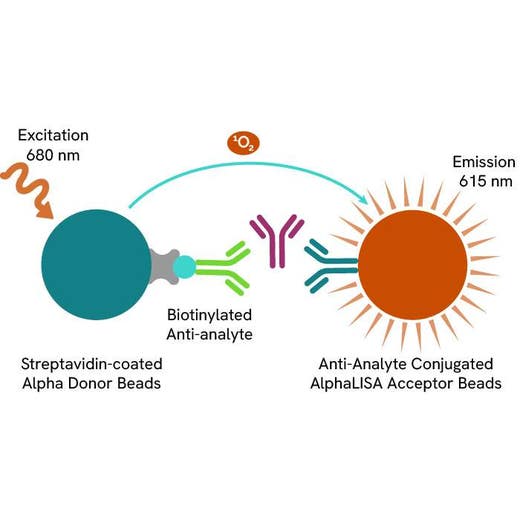




The AlphaLISA™ immunoassay kit for human V-domain Ig suppressor of T cell activation (VISTA) enables the quantitative determination of human VISTA (B7-H5, PD-1H) in serum, buffered solution and cell culture supernatants using a homogeneous AlphaLISA assay (no wash steps).
For research use only. Not for use in diagnostic procedures. All products to be used in accordance with applicable laws and regulations including without limitation, consumption and disposal requirements under European REACH regulations (EC 1907/2006).
| Feature | Specification |
|---|---|
| Application | Protein Quantification |
| Dynamic Range | 14.2 - 100,000 pg/mL |
| Limit of Detection | 14.2 pg/mL |
| Limit of Quantification | 56.6 pg/mL |
| Sample Volume | 10 µL |
The AlphaLISA™ immunoassay kit for human V-domain Ig suppressor of T cell activation (VISTA) enables the quantitative determination of human VISTA (B7-H5, PD-1H) in serum, buffered solution and cell culture supernatants using a homogeneous AlphaLISA assay (no wash steps).
For research use only. Not for use in diagnostic procedures. All products to be used in accordance with applicable laws and regulations including without limitation, consumption and disposal requirements under European REACH regulations (EC 1907/2006).







AlphaLISA B7-H5/VISTA Detection Kit, 100 Assay Points







AlphaLISA B7-H5/VISTA Detection Kit, 100 Assay Points







Product information
Overview
Formats:
- Our 100 assay point kit allows you to run 100 wells in 96-well format, using a 100 µL reaction volume (10 µL of sample).
- Our 500 assay point kit allows you to run 500 wells in 96-well or 384-well format, using a 50 µL reaction volume (5 µL of sample).
- Our 5,000 assay point kit allows you to run 5,000 wells in 96-well or 384-well format, using a 50 µL reaction volume (5 µL of sample).
Features:
- No-wash steps, no separation steps
- ELISA alternative technology
- Sensitive detection
- Broad sample compatibility
- Small sample volume
- Results in less than 3 hours
- Half the time of an ELISA assay
AlphaLISA technology allows the detection of molecules of interest in buffer, cell culture media, serum and plasma in a highly sensitive, quantitative, reproducible and user-friendly mode. In an AlphaLISA assay, a Biotinylated Anti-Analyte Antibody binds to the Streptavidin-coated Alpha Donor beads, while another Anti-Analyte Antibody is conjugated to AlphaLISA Acceptor beads. In the presence of the analyte, the beads come into close proximity. The excitation of the Donor beads provokes the release of singlet oxygen molecules that triggers a cascade of energy transfer in the Acceptor beads, resulting in a sharp peak of light emission at 615 nm.
V-domain Ig suppressor of T cell activation (VISTA), also known as B7-H5 and PD-1H, is a transmembrane protein that functions as an immune checkpoint. VISTA is primarily express in white blood cells and can act either as a ligand or receptor on T-cells. Its main function is to inhibit T cell effector function and maintain peripheral tolerance. VISTA is upregulated in tumor-infiltrating lymphocytes and blocking it with an antibody has proven to stunt tumor growth in mouse melanoma models. HIV-infected individuals also display increased VISTA levels in monocytes.
Specifications
| Application |
Protein Quantification
|
|---|---|
| Automation Compatible |
Yes
|
| Brand |
AlphaLISA
|
| Detection Modality |
Alpha
|
| Dynamic Range |
14.2 - 100,000 pg/mL
|
| Limit of Detection |
14.2 pg/mL
|
| Limit of Quantification |
56.6 pg/mL
|
| Product Group |
Kit
|
| Sample Volume |
10 µL
|
| Shipping Conditions |
Shipped in Blue Ice
|
| Target |
B7-H5,VISTA
|
| Target Class |
Biomarkers
|
| Target Species |
Human
|
| Technology |
Alpha
|
| Therapeutic Area |
Oncology
|
| Unit Size |
100 Assay Points
|
Image gallery






AlphaLISA B7-H5/VISTA Detection Kit, 100 Assay Points






AlphaLISA B7-H5/VISTA Detection Kit, 100 Assay Points






Video gallery

AlphaLISA B7-H5/VISTA Detection Kit, 100 Assay Points

AlphaLISA B7-H5/VISTA Detection Kit, 100 Assay Points

Resources
Are you looking for resources, click on the resource type to explore further.
Membrane proteins, which are key in cellular signaling and often serve as disease biomarkers, are a significant focus in research...


How can we help you?
We are here to answer your questions.






























